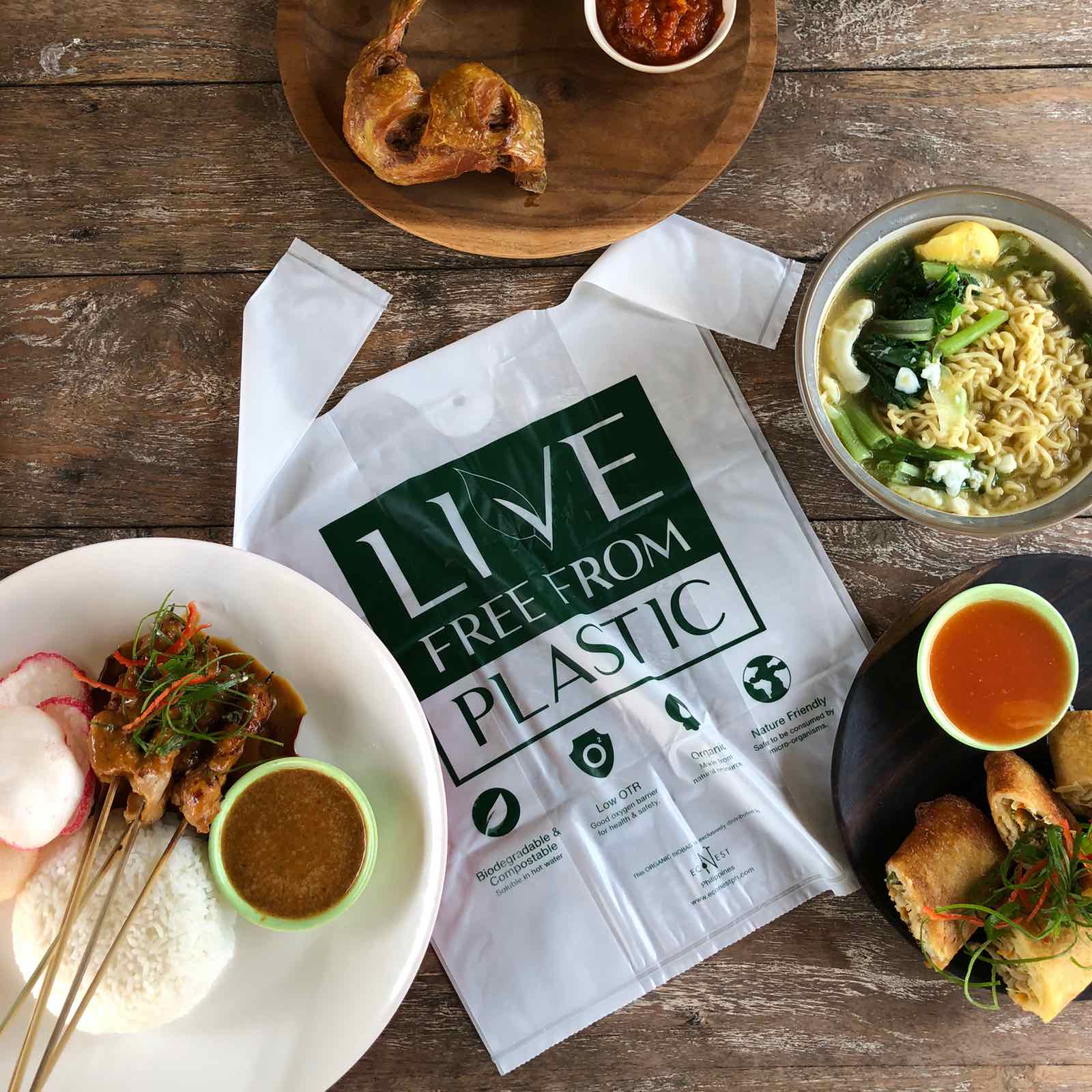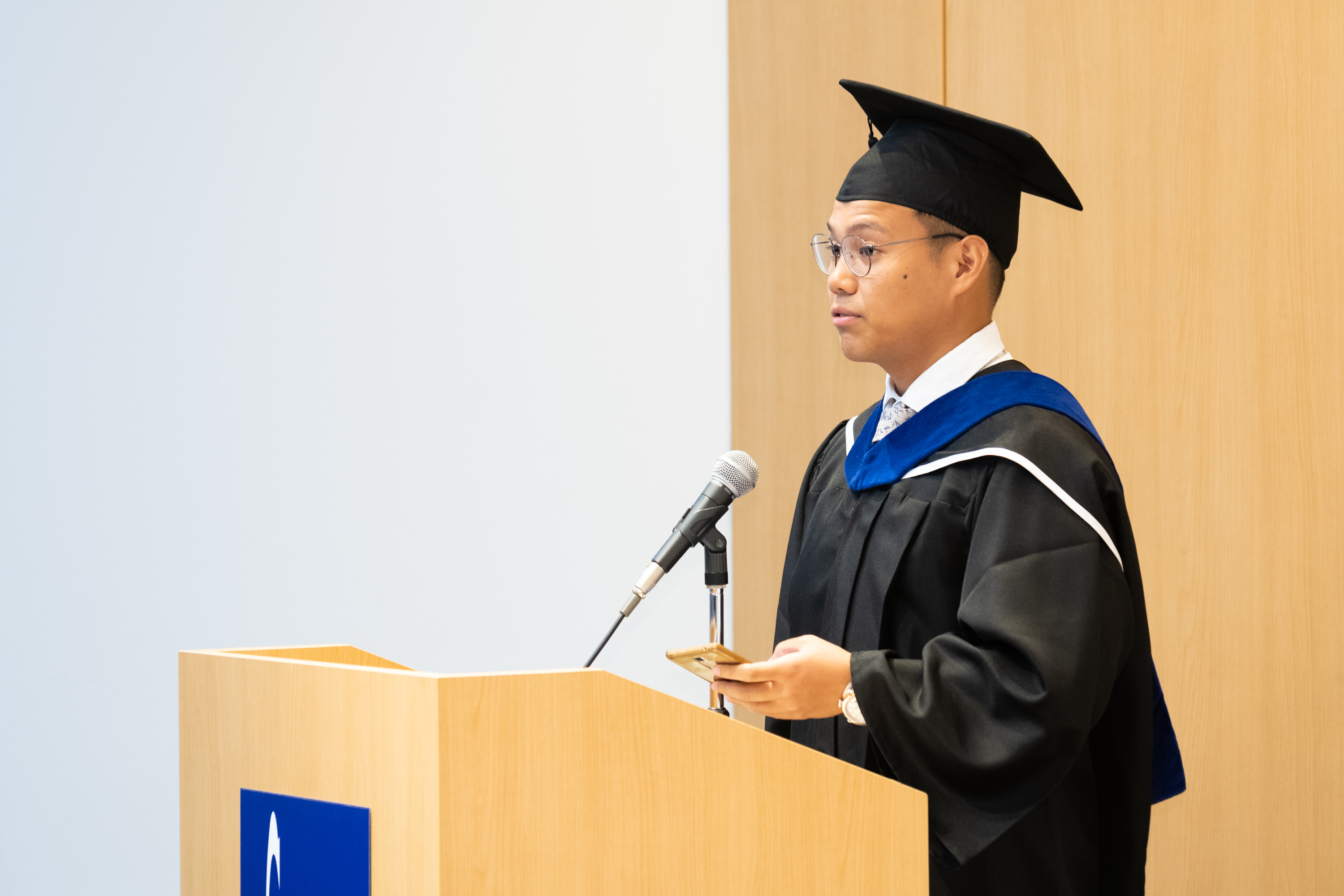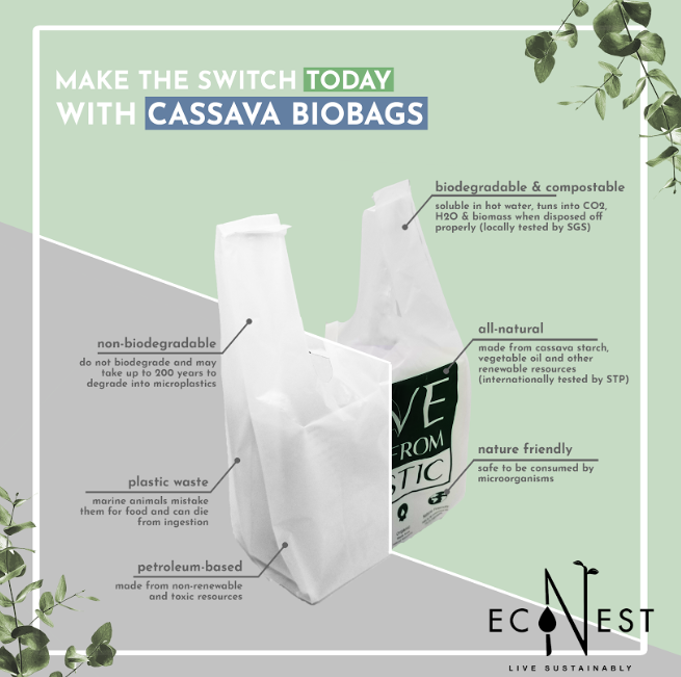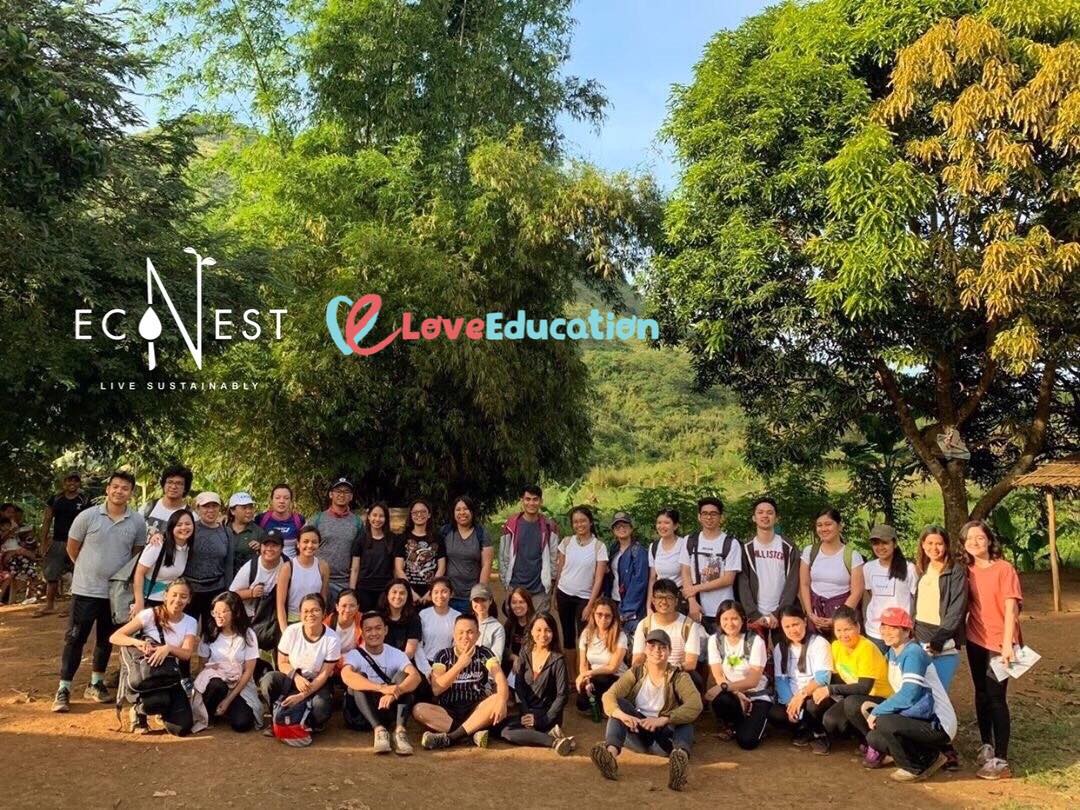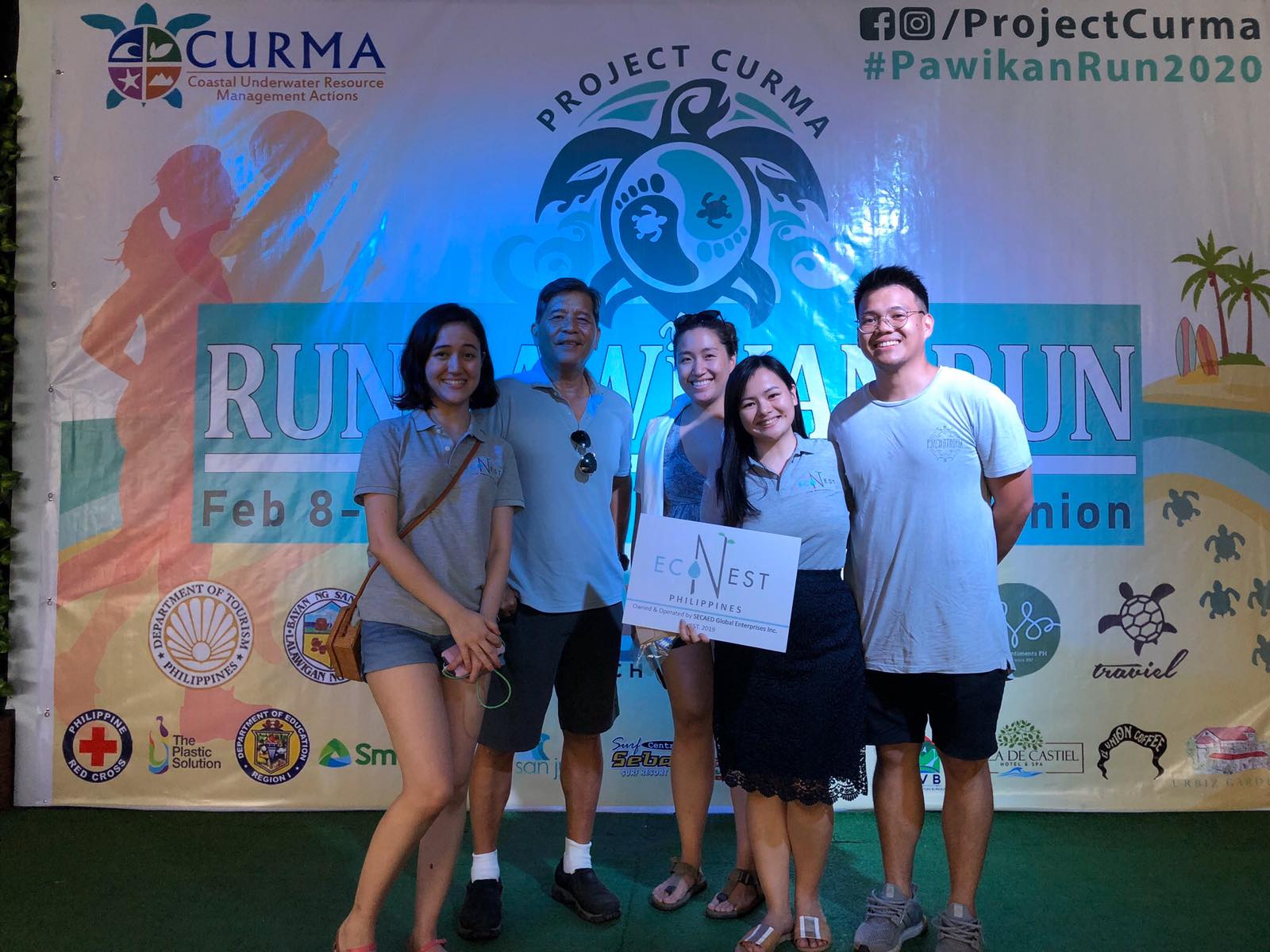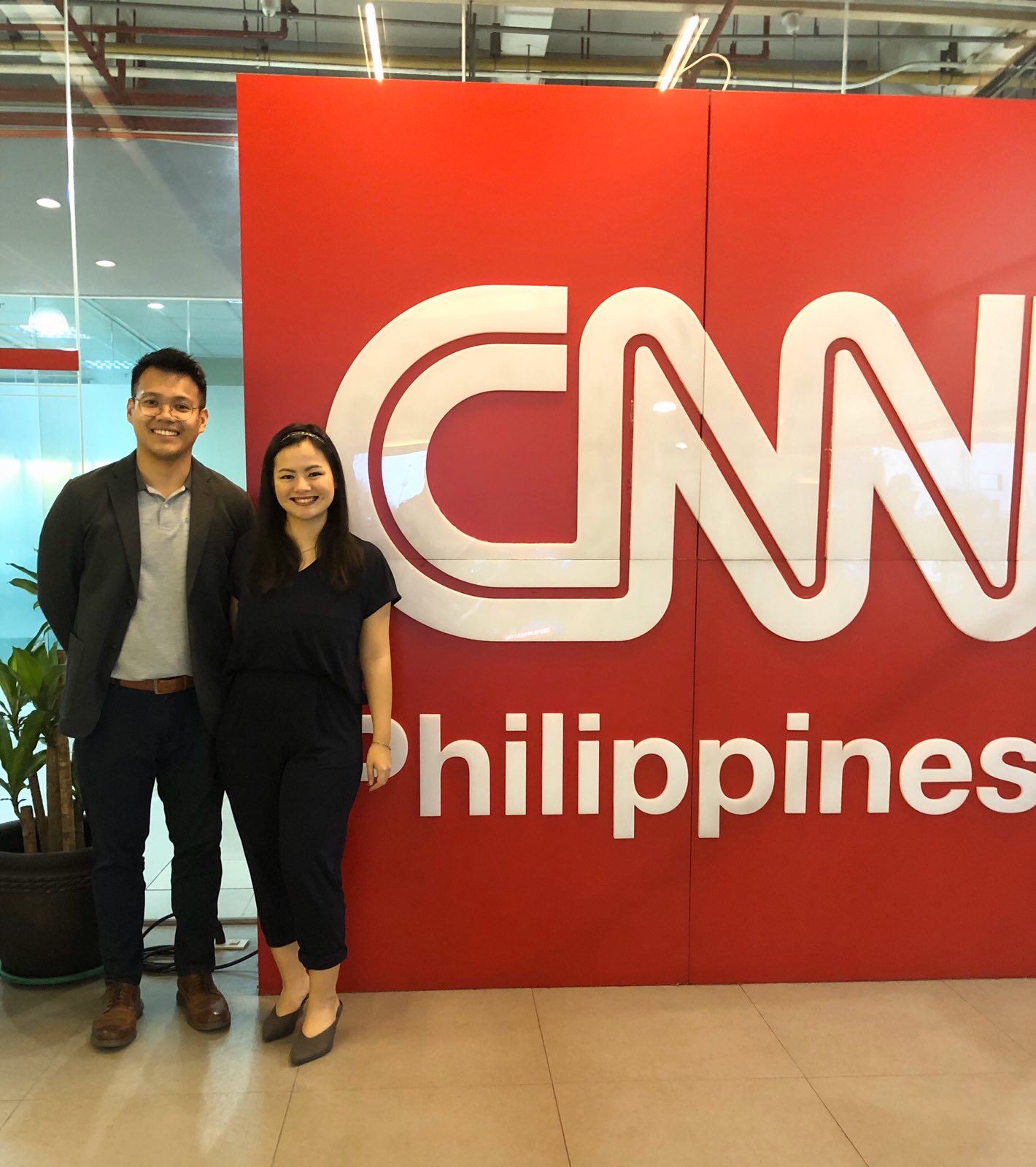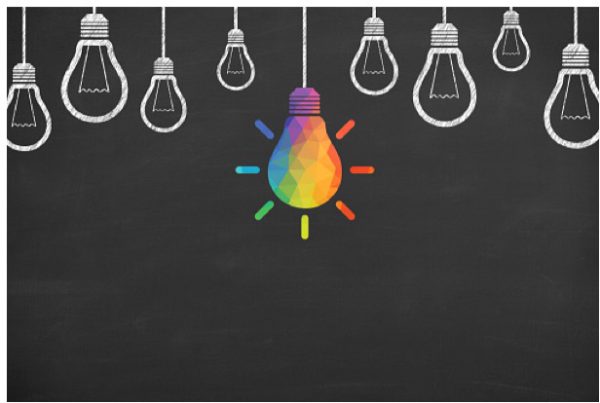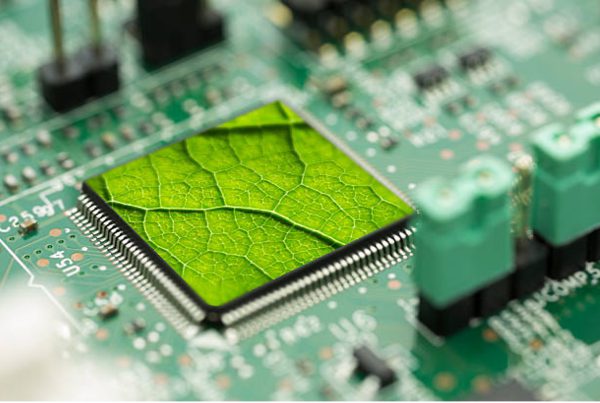Education and collaboration play vital roles in the battle against global environmental concerns, such as the plastic problem. For Joshua Caampued, this means taking ownership of the issue, learning about the best practices in enterprises, and ultimately sharing his knowledge with others in a bid to change their attitudes and behaviors regarding waste.
EcoNest: An idea that took root in Japan
After acquiring an MBA at GLOBIS University in Tokyo, Caampued, who hails from the Philippines, realized that elevating the lives of his countrymen through the use of advanced technology is one of his biggest personal goals.
Inspired by the university’s course on ‘kokorozashi’ or personal mission, he went on to become Co-founder and Managing Partner of EcoNest, a company that offers eco-friendly packaging materials and business supplies.
In the Philippines, the plastic problem is a major environmental challenge. Climate Desk ranks the country as the third worst offender in terms of volume of plastic debris contributed to the ocean in 2010.
“We hope that we as Filipinos will be able to unite and raise our standards in how we run enterprises as we preserve and protect Mother Nature,” Caampued said.
His solution was to advocate the holistic approach in lessening the plastic footprint.
“EcoNest Philippines envisions being a key player in the packaging industry in Asia while ensuring that respect for Mother Nature is at the core of our business,” he explained.
Cassava biobags as packaging
Enterprises make use of a variety of plastic types.
The use depends on the type of product, such as food and drink, detergent, medicine, industrial items, and clothing, among others. The most common types of plastic are Polyethylene Terephthalate (PETE or PET), High-Density Polyethylene (HDPE), Polyvinyl Chloride (PVC), Low-Density Polyethylene (LDPE), Polypropylene (PP), Polystyrene or Styrofoam (PS), and miscellaneous ones, including polycarbonate, polylactide, acrylic, acrylonitrile butadiene, styrene, fiberglass, and nylon.
It should be noted that some types may be recycled, while others may not.
Bioplastics are a newer type of plastics. They have different properties as compared to the standard ones.
EcoNest’s biobags fall in this category.
Made from cassava, an edible root vegetable common in the Philippines, EcoNest biobags are an all-natural, environment-friendly, and sustainable packaging option.
The EcoNest difference
Standard, petroleum-based plastics are non-biodegradable, harmful to animals as they are mistaken for food, and made from non-renewable and toxic resources.
As a large contributor to global pollution, these standard plastics are now commonly seen as a threat to sustainability.
EcoNest provides an ecologically sound alternative to these standard plastics by being biodegradable and home-compostable, made from renewable resources, and having a good oxygen barrier.
Upon proper disposal, it biodegrades in 180 days, is soluble in hot water, and can be consumed by microogranisms.
It also has an O2 barrier and anti-static properties for health and safety.
Its innovative properties make it the sensible choice for enterprises looking to shape a greener future.
Changing attitudes through waste education
This year, EcoNest launches the Sustainability Alliance campaign to encourage local and international businesses and individuals to share their best practices of running environmentally-conscientious enterprises or households.
With the theme “Get Waste Educated,” the campaign highlights the idea that the quest for sustainability actually springs from within.
“Sustainability starts from having the mindset that each of us has a part in protecting and preserving the earth for generations to come,” Caampued stressed.
“The first step is to educate yourself about the realities that our environment is facing then just in your own kitchen, get a pair of spoon and fork, wrap it in a tissue and tuck it in your bag so the next time you buy something for takeout, you won’t have to use plastic cutleries again. This is one simple way of being less wasteful while having sustainability already in mind,” he said.
At present, a huge number of companies and individuals still resist the call for sustainability, claiming that it is expensive and tedious to shift to an eco-friendly lifestyle, he noted.
However, this is often without considering the negative environmental impact and non-value added costs of retaining the use of petroleum-based, single-use plastic items.
“Our price points for cassava biobags are close to non-woven eco-cloth bags made from polypropelyne—a type of plastic that looks like fabric that does not biodegrade and yet considered more acceptable because of misinformation,” he clarified.
”My ultimate vision is to create a community of environmentally conscientious individuals and business owners who take action in addressing our current environmental issues.
“We intend to achieve this through our three brand pillars: PREVENT – by switching to truly biodegradable & compostable packaging materials being offered by EcoNest PH instead of still using petroleum-based plastic packaging, CURE – by participating in both community or company-initiated activities such as tree-planting, turtle-hatching, coastal cleanup etc. to create awareness and help resolve our on-going problems, and lastly, SUSTAIN – by educating more people about the available alternatives, its benefits and the importance of leading a sustainable business,” Caampued said.
“It is high time that we discard our perception that eco-friendly packaging materials are expensive,” he appealed.
“Re-use materials that are still functional, continue researching about the benefits of recycled/upcycled packaging items, and don’t forget to return to nature those that can biodegrade and be composted,” he concluded.

